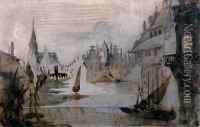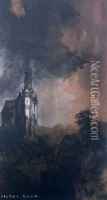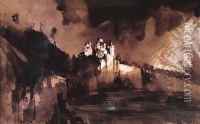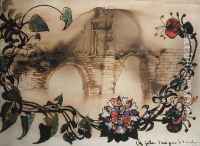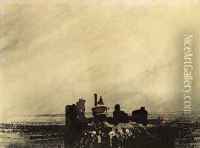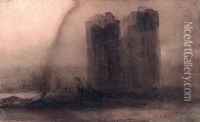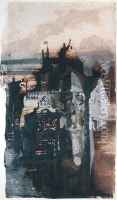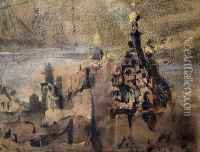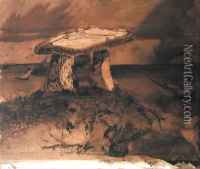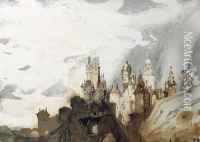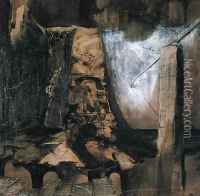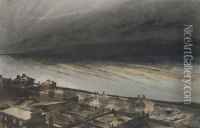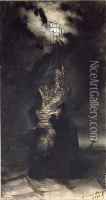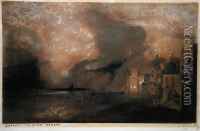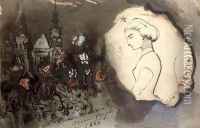Victor Hugo Paintings
Victor Hugo was a French poet, playwright, novelist, statesman, and human rights activist. He is considered one of the greatest and best-known French writers. Hugo was born on February 26, 1802, in Besançon in the Eastern region of France. He was the third son of Joseph Léopold Sigisbert Hugo and Sophie Trébuchet. His childhood was a period of national political turmoil. Hugo's father was a high-ranking officer in Napoleon's army, which exposed young Victor to the diverse political and cultural landscape of France and Italy where they moved frequently.
Hugo began his career as a poet, garnering attention with his collection 'Odes et poésies diverses,' which won him a royal pension from Louis XVIII. As a young man, Hugo vowed to be 'Chateaubriand or nothing,' and his life's work reflects his determination to surpass the achievements of his predecessor. He transitioned from royalist to a passionate supporter of republicanism and dedicated much of his work to social and political causes.
His early work as a playwright was marked by both success and controversy, particularly with his play 'Hernani,' which was met with riots by traditionalist audiences. Hugo's literary reputation was fully established with his novels 'The Hunchback of Notre-Dame' (1831) and 'Les Misérables' (1862). The former set in medieval Paris and the latter in the revolutionary era, these works are celebrated for their exploration of social injustice and the inherent worth of every individual.
Hugo was also an important figure in the Romantic literary movement, which emphasized individualism, subjectivity, and the sublime, often in response to the rationalism of the Enlightenment and the strict rules of classical literature. His poems, such as those in 'Les Contemplations' and 'La Légende des siècles,' are considered landmarks in French literature.
In the political sphere, Hugo served as a deputy in the National Assembly. During the Second Empire, he was an outspoken critic of Napoleon III's rule, which led to his exile. Hugo lived on the Channel Islands of Jersey and Guernsey for nearly 20 years, during which time he wrote some of his best work.
After the fall of Napoleon III, Hugo returned to France and was welcomed as a national hero. He continued to write and remained active in politics until his death. He advocated for social causes such as the abolition of the death penalty, education reform, and expansion of women's rights.
Victor Hugo passed away on May 22, 1885, in Paris. His death was mourned by millions, and he was given a national funeral. He was buried in the Panthéon, among other illustrious French citizens. His legacy persists, not only through his voluminous contributions to literature but also through his impact on social justice and the political landscape of his time.
